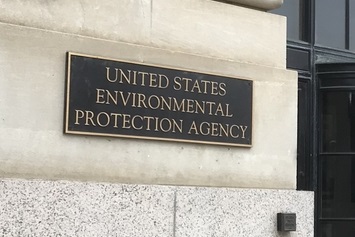The role of Federal Advisory Committees (FACs) that advise the EPA on the environment and human health is in a state of transition that is being viewed differently by the Trump administration on one side and congressional Democrats and many scientists on the other.
Actions by the administration and ex-EPA Administrator Scott Pruitt appear to indicate that membership on the EPA’s FACs, and particularly its science FACs, has been dominated by individuals who are biased in favor of more regulation and not particularly interested in the impact their scientific assessments have on the nation’s economy. Pruitt addressed the perceived imbalance in October 2017 by issuing several documents that changed the criteria for membership on the Agency’s committees so that industry has a better representation (see Pruitt’s documents here).
Current EPA Administrator Andrew Wheeler seems content to continue Pruitt’s policies. The administration’s critics in Congress, in scientific organizations, and from environmental and health professionals view the policies as an attack on objective science and more specifically as a way to eliminate from the EPA’s committees the very scientists who are best qualified to make apolitical scientific assessments and replace them with individuals whose careers have advanced thanks to assistance from the regulated community.
The impact of Pruitt’s policies is being seen in the membership aspects of several EPA science committees. For example, in a July 2019 report, the Government Accountability Office (GAO) found that after Donald Trump was elected president, there were “substantial decreases” in the number of members with academic affiliations on two key science committees: the Science Advisory Board (SAB) and the Board of Scientific Counselors (BOSC). Also, for the SAB, the GAO found that members affiliated with the Northeast region decreased by more than 14 percent, or from 28 percent (13 of 47 members) on January 19, 2017, to 14 percent (6 of 44 members) about 15 months later on March 31, 2018. (The GAO report was primarily concerned with several lapses in the committee appointment process it says are occurring under the current EPA. For example, the GAO found that the EPA was not following required ethics protocols in reviewing the financial disclosures of committee members.)
The transition in scientific committees will probably accelerate further following Trump’s issuance of an Executive Order (EO) directing each federal agency to terminate at least one-third of its current committees by September 30, 2019; the EO seeks to reduce to 350 the total number of committees established in accordance with the Federal Advisory Committee Act (FACA). The EO targets those committees that agencies determine have accomplished their mission, whose work has become obsolete, whose primary functions have been assumed by another entity, and whose costs of operation are excessive in relation to the benefits to the federal government. While those are rather subjective criteria, the EO states that the criteria will be clarified in implementation instructions to be issued by the Office of Management and Budget (OMB). The EO does not apply to advisory committees required by federal law.
Pruitt’s FAC Policy
In his memo, Strengthening and Improving Membership on EPA Federal Advisory Committees, Pruitt noted that the FACA states that all FACs must be “fairly balanced in terms of the points of view represented and functions to be performed by the committee.”
According to Pruitt, the integrity of the EPA’s FACs and confidence in them are compromised when members are in possession of EPA grants. Such “financial entanglements … can create the appearance or reality of potential interference with their ability to independently and objectively serve as a FAC member,” wrote Pruitt.
“Accordingly … it shall be the policy of the Agency that no member of an EPA federal advisory committee currently receive EPA grants, either as a principal investigator or co-investigator, or in a position that would reap substantial direct benefit from an EPA grant,” the memo continues.
The second major policy change is intended to ensure that FAC members represent a “broad range of geographic regions—especially areas that have historically been unrepresented or underrepresented.”
Also, the memo discouraged extended memberships, previously a common practice, as memberships were regularly renewed at the end of terms “to allow for new opinions and fresh ideas.”
“Members who serve on FACs for an extended and continuous period of time risk minimizing viewpoints, lessening diversity, and preventing other qualified candidates from service,” wrote Pruitt.
Congressional Democrats Speak
The president’s EO prompted criticism from Eddie Bernice Johnson (D-TX), who chairs the House Committee on Science, Space, and Technology.
“Such directives are clumsy at best and malicious at worst—there is no reason to presume that one-third of committees have exhausted their usefulness,” said Johnson. “A cap on committees serves only to create a barrier for Agencies to solicit expert advice in a transparent manner.”
The administration’s actions to reengineer FACs and the impact in particular on science at the EPA led Johnson to convene a hearing on how science should inform regulatory decisions. Apart from J. Alfredo Gomez, who oversaw the GAO’s investigation and report, the three witnesses at the hearing, each a nongovernmental scientist or doctor, agreed that the administration’s policies and actions were negatively affecting the role and influence of objective science at the EPA. Based on the documents released by the committee, there appeared to be no interest on the part on the Democratic leadership to publicize views that support the administration’s actions.
Science at EPA Is ‘Complicated’
If one were to list the federal agencies that rely the most on the natural sciences, the EPA would rank comfortably with agencies such as the Food and Drug Administration, the Department of Energy, and the National Institute of Health. The reliance on science at the EPA is manifest in the number of federal committees that advise the Agency on environmental science and epidemiology. Of the EPA’s 22 primary advisory committees, about half are mainly concerned with scientific matters, such as the sources of pollution, human exposure to pollution and hazardous chemicals, and the effects of these substances on human health and ecology. Also, seven of the Agency’s science committees are required by statute and may not be eliminated under the president’s EO unless the applicable statute authorizes elimination. The EPA used its own authority to establish the remaining science committees, and these would not appear to have much of a future unless the OMB grants an Agency request for a waiver from elimination, as specified in the EO. A list of all EPA advisory committees, along with their charters, is here.
The scientific challenges at the EPA were summarized at the House hearing by Deborah Swackhamer, a professor emerita from the University of Minnesota, who held appointments in Environmental Health Sciences. Swackhamer also chaired the EPA’s SAB from 2008 to 2012 and the BOSC from 2015 to 2017. Swackhamer stated:
“The EPA is charged with protecting human health and the environment. This widely encompassing mandate is highly complicated. The many issues affecting human health require understanding pollutant sources to air, water, and soil; the movement of pollutants through air, water, and soil; the exposures of these pollutants to people through breathing, eating, drinking, and through the skin; then understanding the impacts to human health at the cellular, genetic, metabolic, and organ levels; and finally the outcomes of these impacts such as illness, reproductive disorders, various diseases, cancer, etc. There are hundreds of known pollutants, and thousands of potential pollutants. While EPA regulates individual pollutants, we know that there are all kinds of interactions (environmentally and toxicologically) that increase the actual complexity of this in an exponential manner. This complexity requires that many diverse fields of scientific expertise be brought to bear to help achieve EPA’s mandate: environmental engineering; air and water pollutant modeling; water resource expertise; environmental biology, microbiology, and chemistry; exposure science; ecology; and human, wildlife, and aquatic toxicology.”
The EPA must not only manage all the above tasks and acquire all the required information but also do so according to the highest standards of science. All stakeholders call for the use of the “best science,” a phrase that is used constantly in environmental law and policy, although it usually is interpreted differently depending on the political inclinations of the user. For Swackhamer, the EPA meets the best-science mandate by using “the most current, robust, and accepted scientific evidence available.” This can only be done, she continues, when the science committees provide the Agency with external, objective advice.
“They are the independent eyes looking in from outside, able to examine scientific evidence, make constructive recommendations, and provide peer review,” testified Swackhamer. “The second role is to provide the EPA with access to an expanded pool of expertise. The EPA does not have the resources to have all the many facets of environmental science covered by agency staff, and thus having access to leaders in environmental research from outside the Agency is a huge advantage to informing their own research priorities (e.g., BOSC) or reviewing their scientific evidence for regulations (e.g., the Clean Air Scientific Advisory Committee [CASAC] and SAB).”
Science or Regulation?
As with many members of the scientific community, Swackhamer is most concerned about changes to the committee appointment process instituted by Pruitt. As noted, the stated intent of the ban on individuals receiving EPA grants is to ensure that committee members are independent of the EPA and not susceptible to conflicts of interest. But, Swackhamer notes, there is no ban on individuals who worked for or otherwise benefited from relationships with large, regulated companies, including those in the chemical and fossil fuel sectors.
“This created the perception that the intent of the Administrator’s Office was to remove independent research scientists and replace them with people having a vested interest in the regulatory actions of EPA,” said Swackhamer. “On June 19, 2017, all of the members of the five BOSC subcommittees who were up for a second term had their memberships terminated. Regardless of the motive, it meant that BOSC was stripped of the vast majority of its members, all its future scheduled meetings were canceled, and thus it could not provide timely advice to the [EPA’s Office of Research and Development] on a number of important pending matters.”
Swackhamer herself was removed as chair of the BOSC on October 31, 2017, and the “Administrator took similar actions against the SAB and CASAC,” she added.
“Why would the EPA Administrator’s Office interfere with the science advisory committees?” Swackhamer asked and answered as follows:
“It is my concern that they are populating the committees (especially SAB and CASAC) with a significant number of members who have a vested interest in EPA actions and regulations, thus co-opting the committees to support the overall direction of the Agency to deregulate fossil fuel and other industries and loosen environmental protections, rather than provide independent advice based on solid science. The EPA administration has demonstrated a pattern of selectively cherry-picking scientific evidence, of ignoring rigorous scientific evidence, or simply politicizing science to justify its actions. While regulations can be affected by politics, science never should be.”



